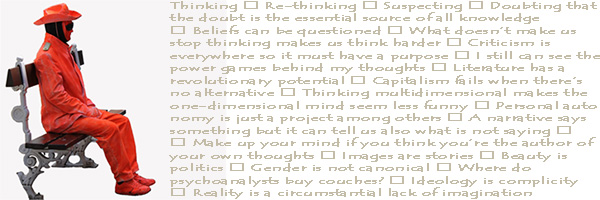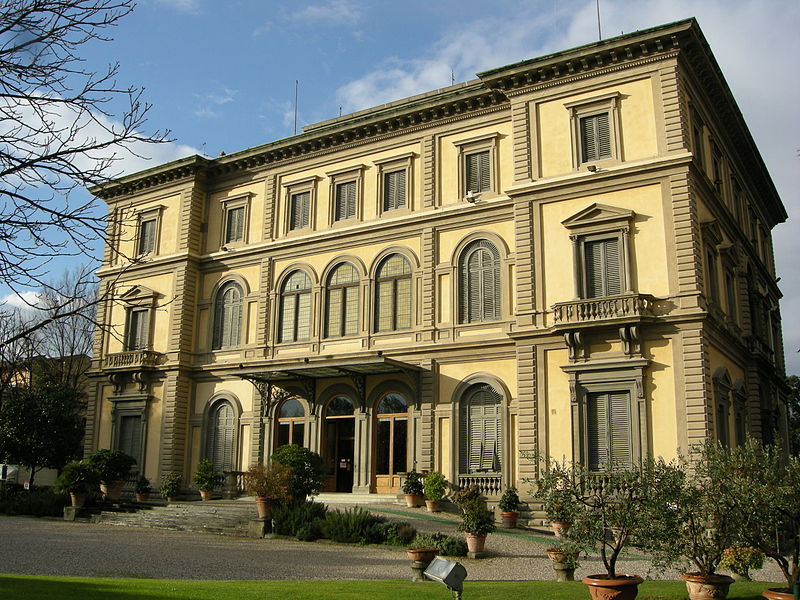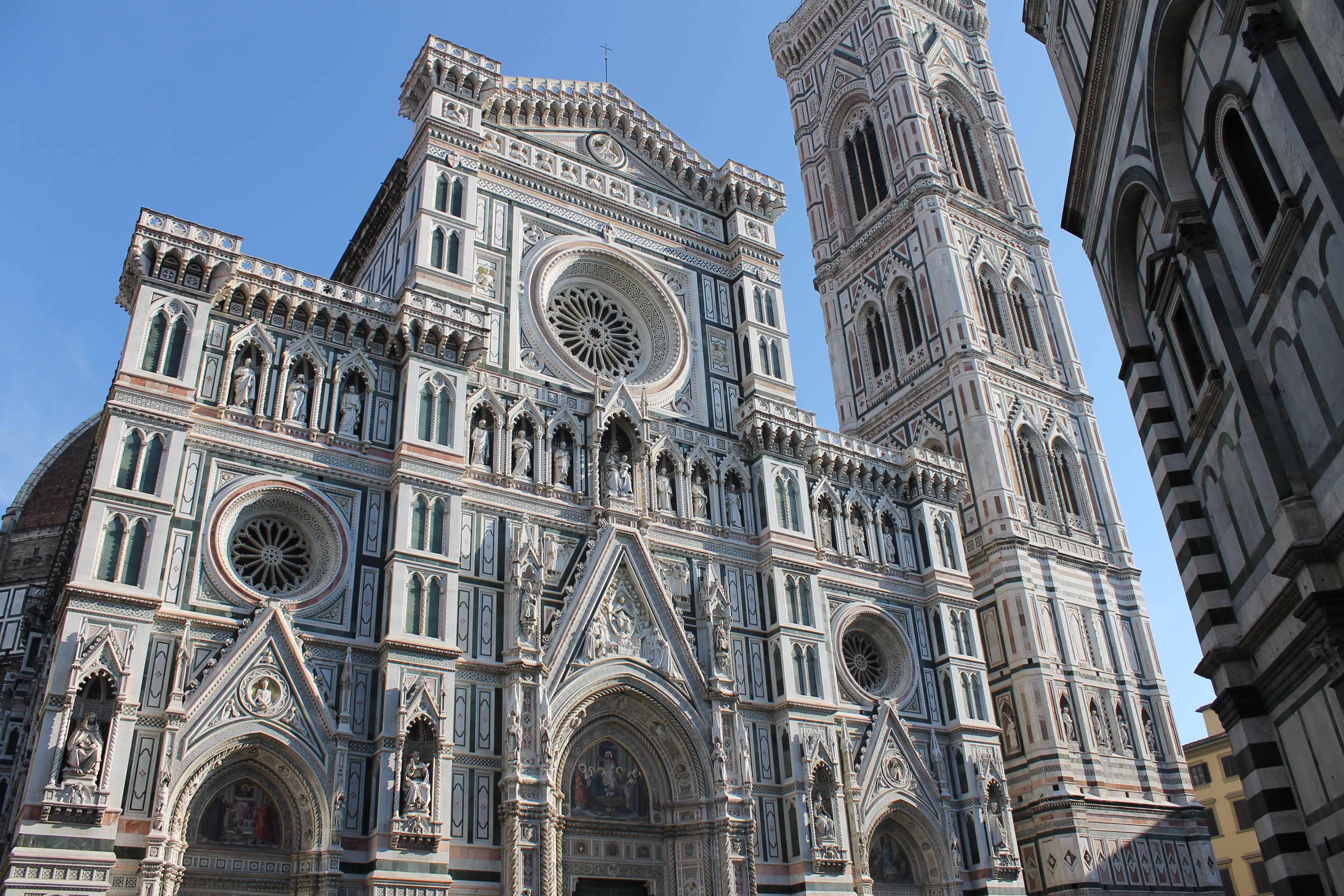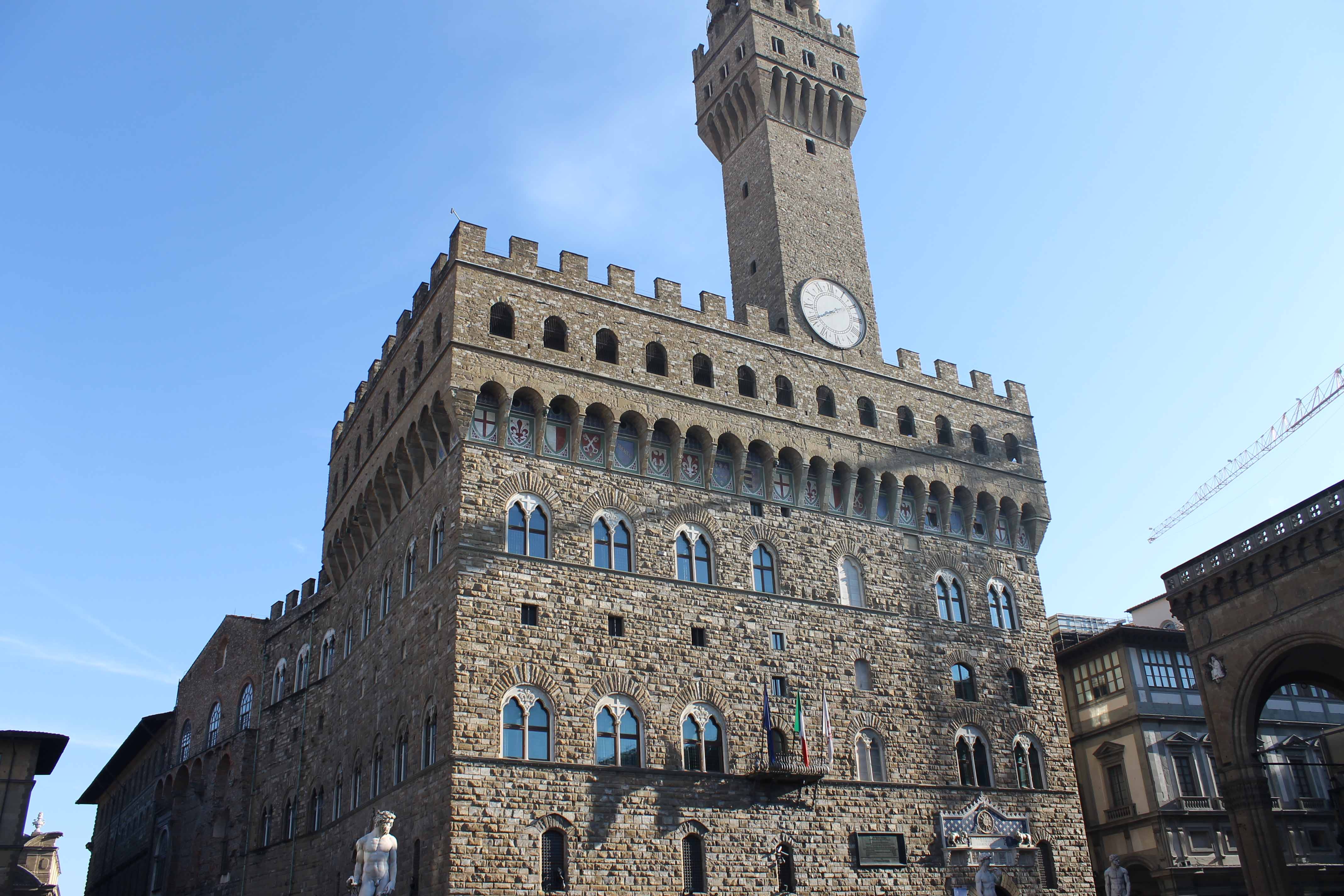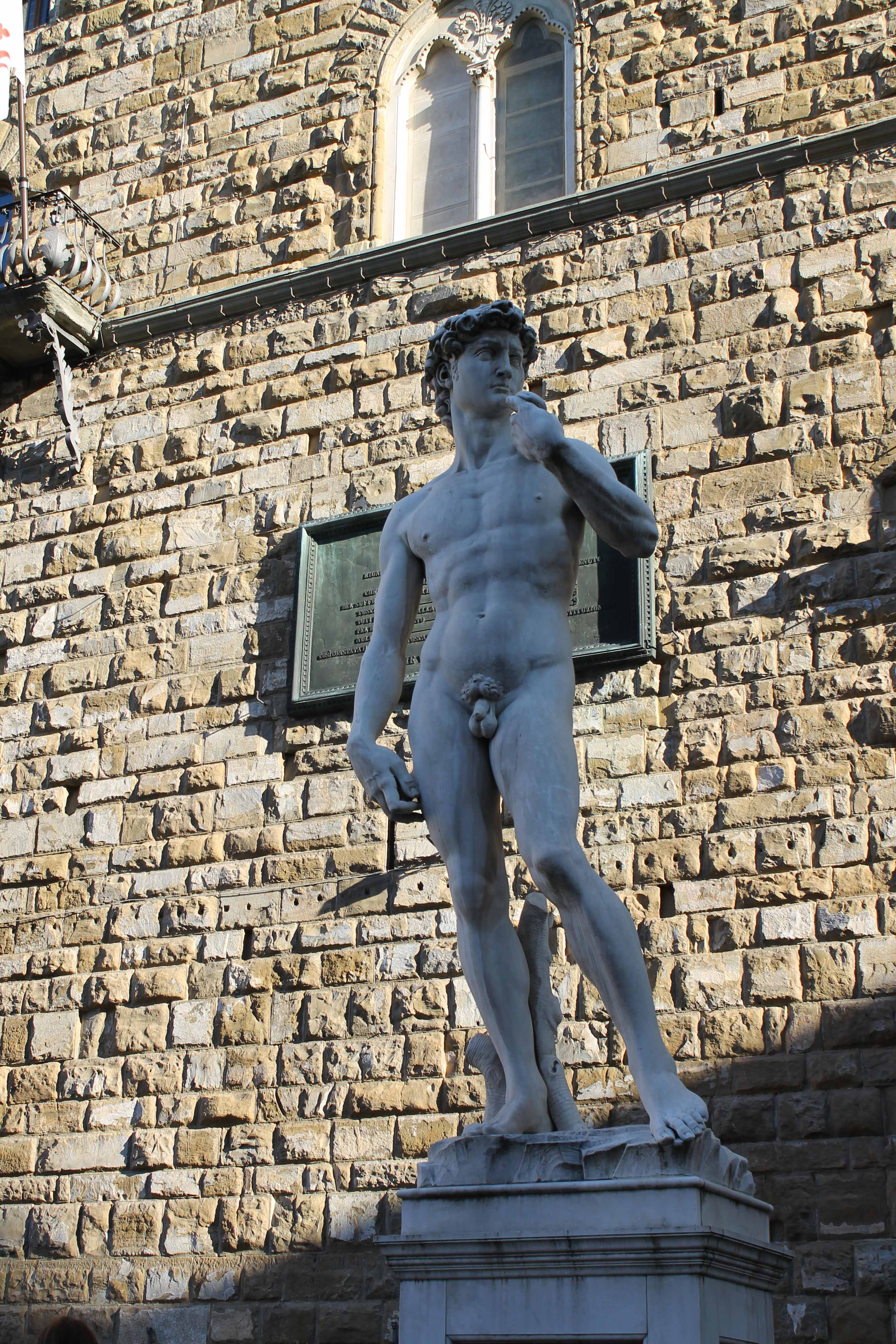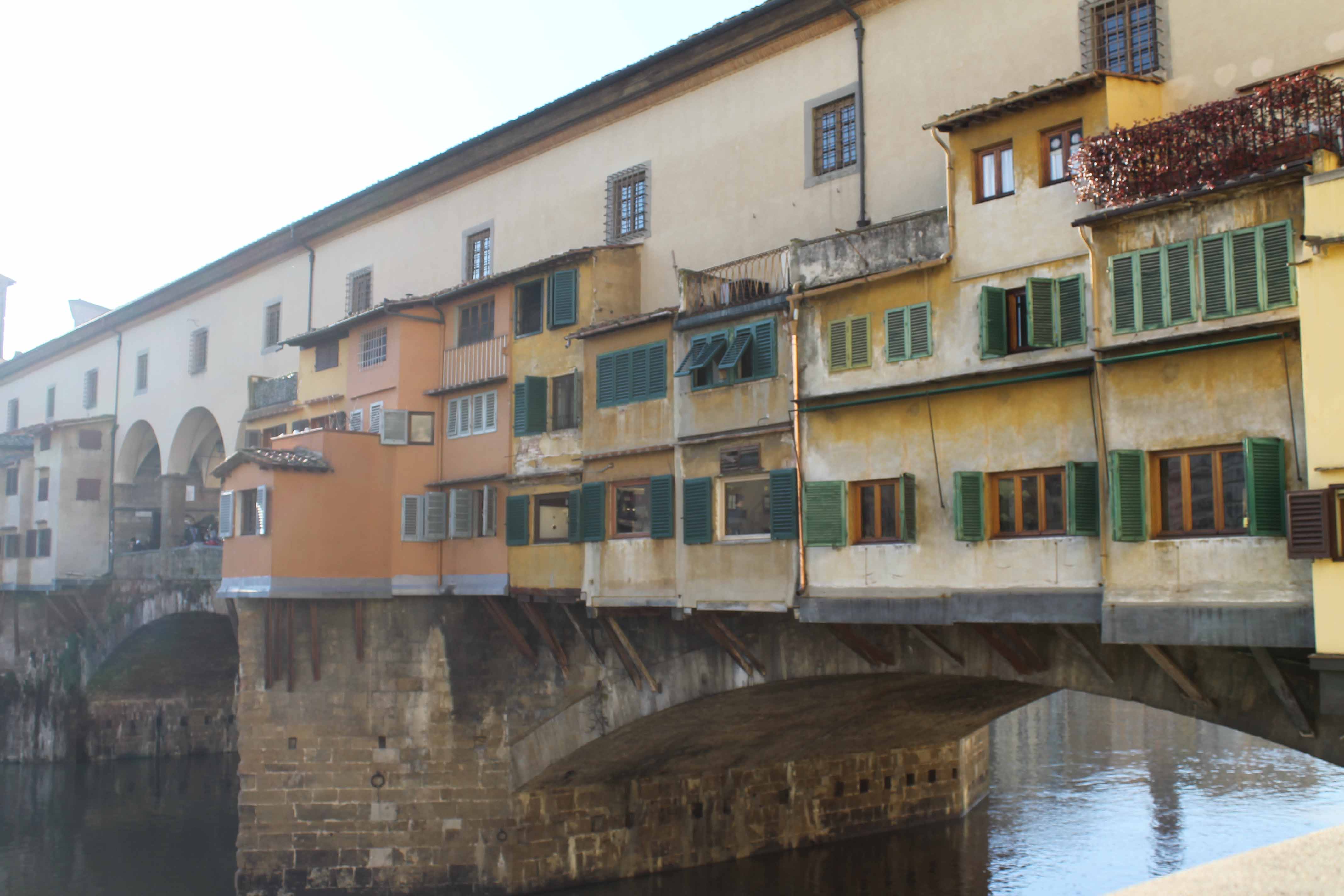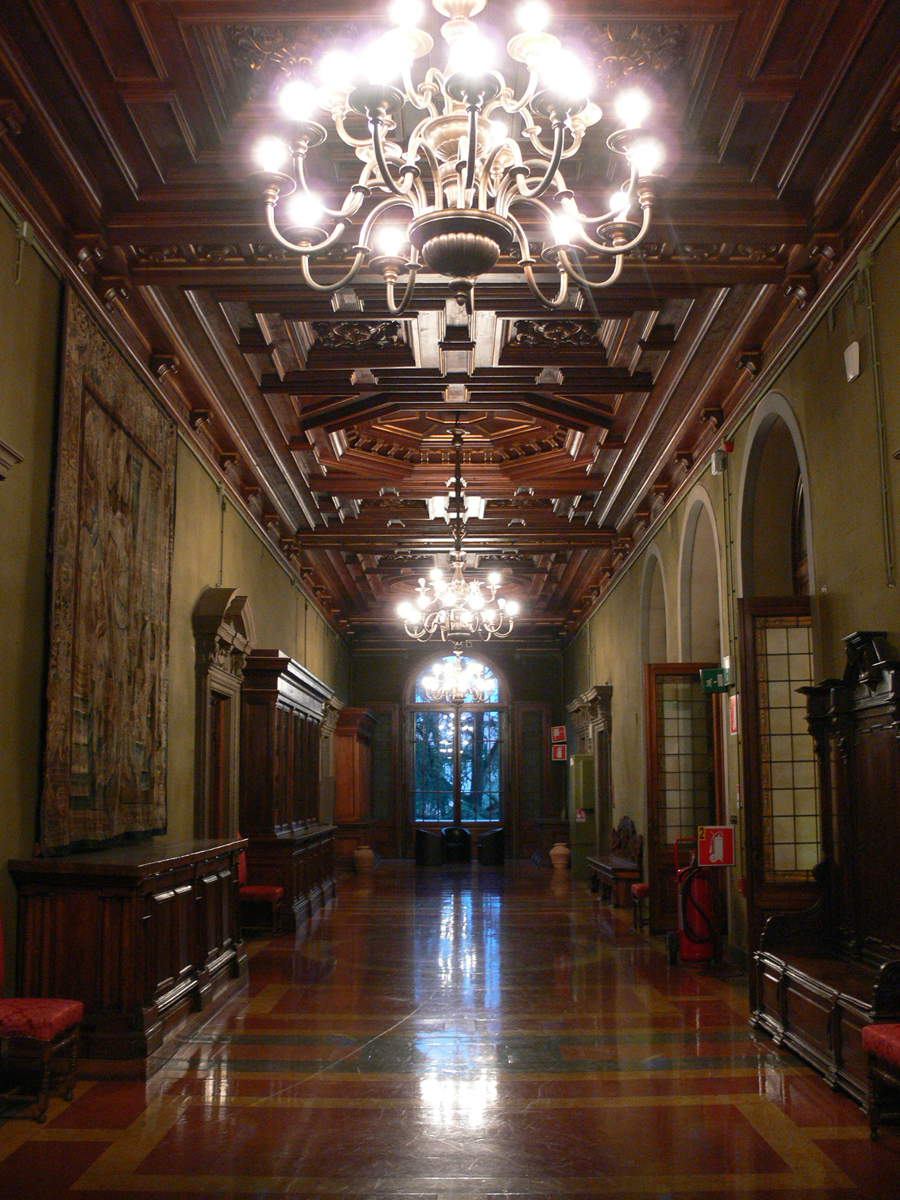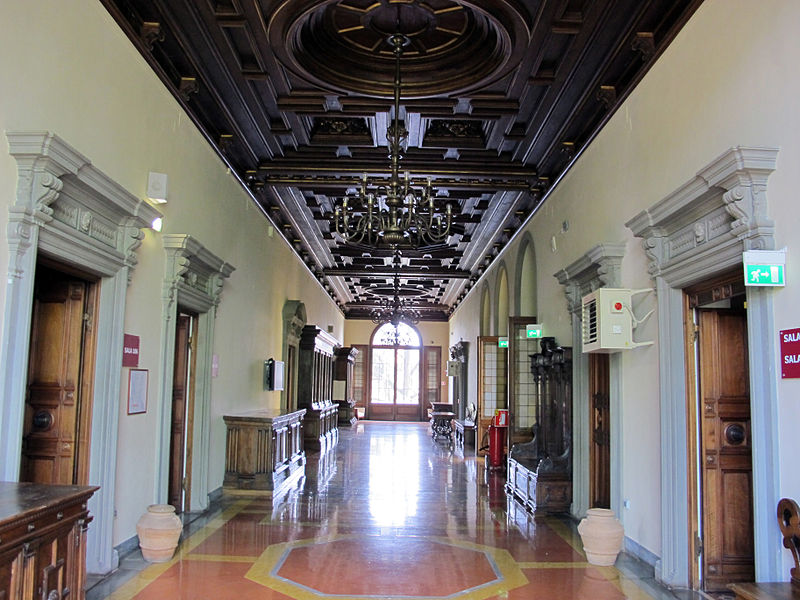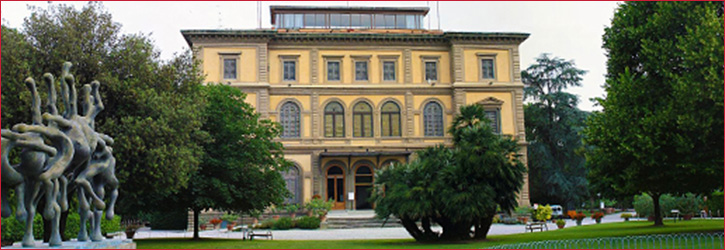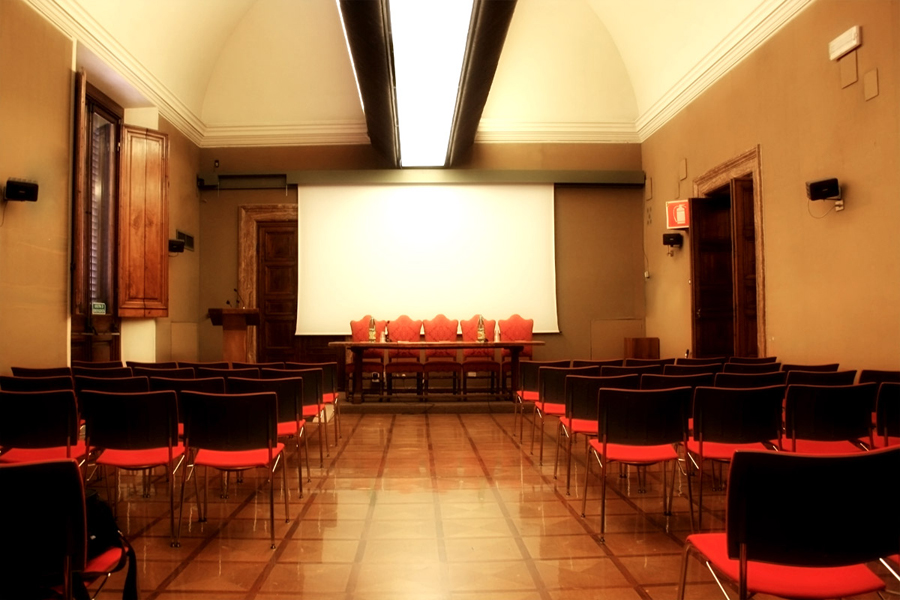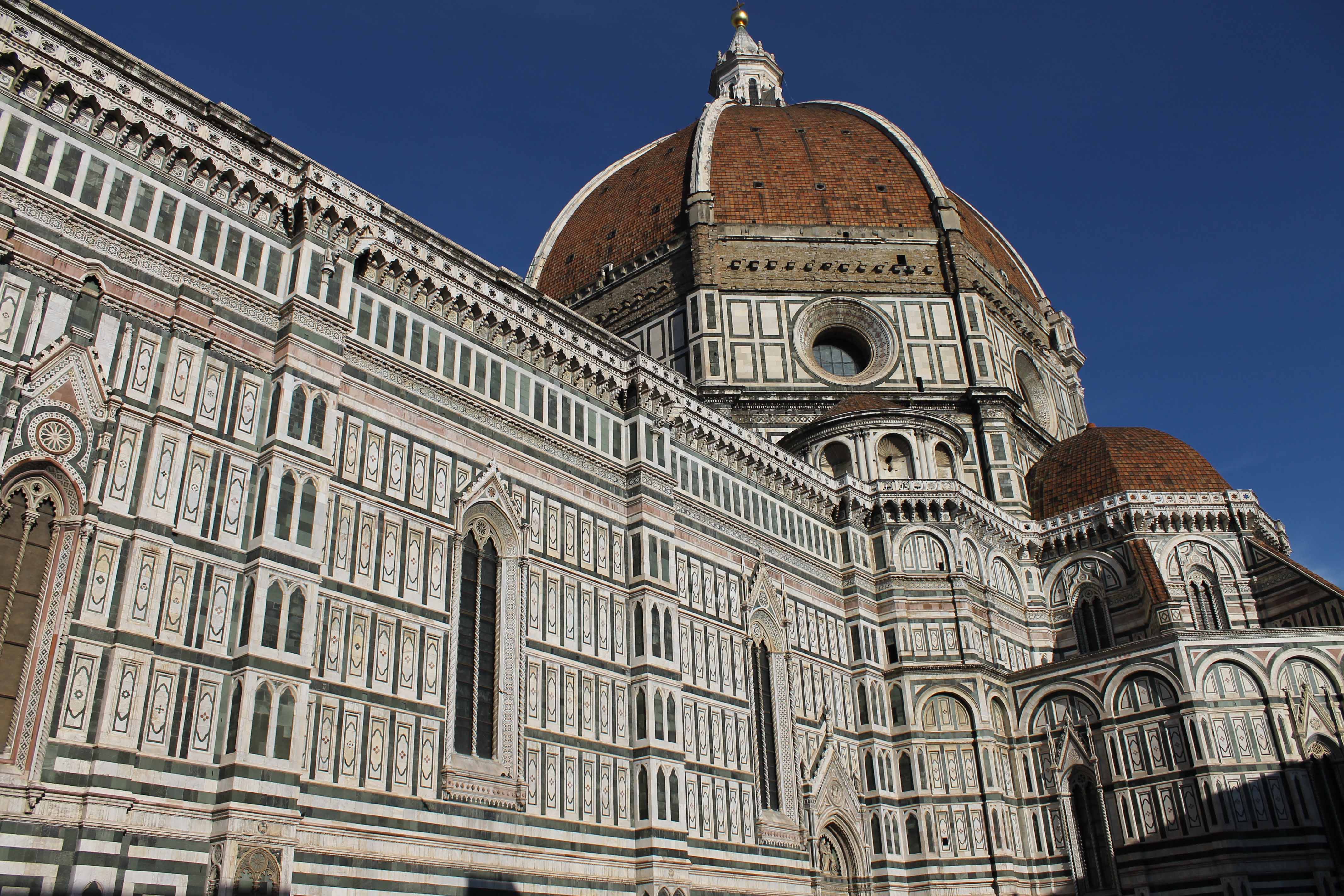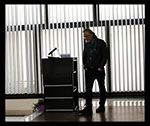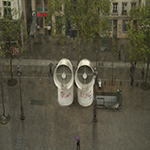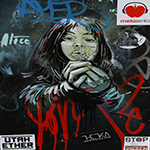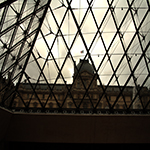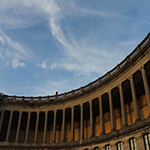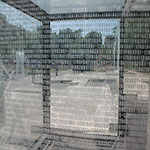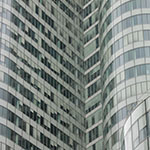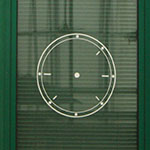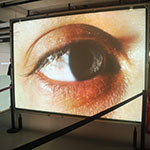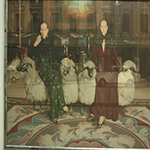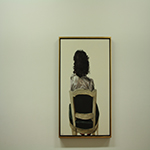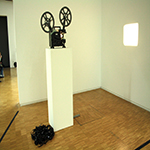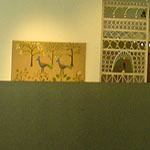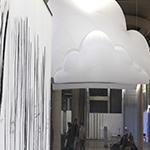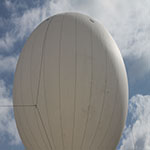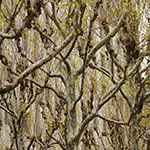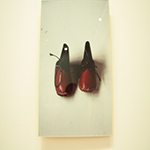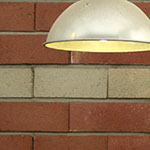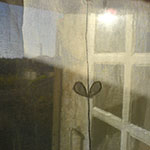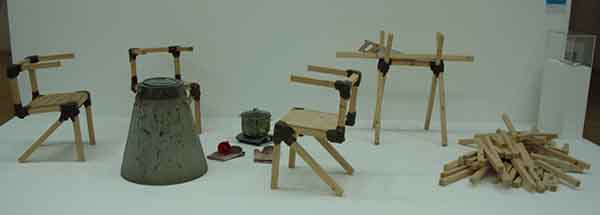Villa Vittoria – Palazzo Dei Congressi
Piazza Adua 1, Florence, ItalyConference Agenda
- February 6, 2015
- 08:30 - 09:00Participants Registration (Registration Desk)
- 09:00 - 09:30Welcome and Opening Remarks - Open Floor Workshop: Asking Big Questions Again
- 09:30 - 10:30Keynote Speech: Mark Neufeld - Thinking Critically - Thinking Contrapuntally: The Practice of Critique in a Global(izing) Context
- 10:30 - 11:00Coffee Break and Snacks
- 11:00 - 13:00Panel 1: Society, Politics and Economies: Critical Evaluations of Systems, Movements, Markets and Parties
- 13:00 - 14:30Tuscan Specialties Lunch – Restaurant
- 14:30 - 16:30Panel 2: From Legislators to Interpreters: Reflexive Readings of Grand Theories and Exercises in Critical Thinking
- 16:30 - 17:00Coffee Break and Snacks
- 17:00 - 19:00Panel 3: Places and Artifacts of Identification: Transformations in Urban Image Construction and Contemporary Design
- 19:00 - 19:45Welcome Drink – Aperitivo in Firenze
- 19:45 - 21:00Optional Social Dinner in a Typical Florentine Restaurant
- February 7, 2015
- 08:30 - 10:30Panel 4: Aesthetics of Representation: Photography, Text, Media and Performative Identities
- 10:30 - 11:00Coffee Break and Snacks
- 11:00 - 13:00Panel 5: Art, Identity, History and Places
- 13:00 - 14:30Tuscan Specialties Lunch – Restaurant
- 14:30 - 16:30Panel 6: Performing Identities in Literature and Visual Arts: Race, Power, Diasporic Nostalgia and Poetic Self - Experience
- 16:30 - 17:00Coffee Break and Snacks
- 17:00 - 18:30Panel 7: The Sequential Art: Comics as a Cultural Nexus
- 18:30 - 19:00Concluding Remarks and Discussions
- 19:00 - 21:00Optional Social Dinner in Florence
- February 8, 2015
- 10:00 - 14:00Optional Walking Guided Tour of Historical Florence
- February 6, 2015
The Third Forum of Critical Studies: Asking Big Questions Again

- Conference Description
- Participant’s Profile
- Registration and Fee
- Social Activities and Publication
- Important Dates
- Venue and Directions
- Conference Program
- Keynote Presentation
- Panel 1
- Panel 2
- Panel 3
- Panel 4
- Panel 5
- Panel 6
- Panel 7
The Third Euroacademia
Forum of Critical Studies
Asking Big Questions Again
6 – 7 February 2015
Villa Vittoria – Palazzo dei Congressi
Florence, Italy
Keynote Speaker: Mark Neufeld, Trent University, Canada
Thinking Critically – Thinking Contrapuntally: The Practice of Critique in a Global(izing) Context
Conference Description:
Some say that the 21st Century or modernity altogether made humans more concerned with doing rather than being. As the classical Greek civilization valued most the reflexive thinking as a form of freedom from natural necessities, contemporary times profoundly involve individuals and the imaginary accompanying social practices in a restless logic of consumption, competition and engagement that profoundly – or some would say, radically – suspends or indefinitely postpones the autonomous capacity of human beings to question and reflect upon the social order and the meaning of social practices. The fast advancement of a peculiar logic of post-industrial societies, the gradual dissolution of alternative models to the capitalist logic and a multitude of other alerting factors pushed ahead a global spread culture of one-dimensional productions of meaning that advances a closure rather than a constant reflexive re-evaluation of cultural and social practices.
Many alternatives at hand are often condemned to marginality or lost in the quasi-plural practices where everything goes as long as it’s part of an intellectual market. The ‘fatal strategies’ of post-industrial societies to keep individuals captive, busy and seduced by contingent social arrangements and economic practices minimized the questioning detachment required to evaluate and give meaning through reflexive criticism and unlimited interrogation. Various labels were given to our unfolding times from apocalyptic ones to some more comforting yet, not by chance, lacking some vital optimism. Despite a wide-spread discontent and suspicion towards daily realities of our current societies, most of big questions are often left outside by the self-involved active pursuit of an imagined well-being that is no longer transgressed by harsh critical evaluation of its meaning. The academic arena itself also advances, supports, integrates and promotes limited particular methodologies that generate an effect of mainstreaming and often keeps researchers or practitioners out of the battle-ground for big questions.
The ongoing economic crisis made reality even harsher and pushed ahead the need for more thinking as many habitual categories lost their meaning or relevance. New ways of thinking could transgress some inappropriate conceptions or misconceptions that preserve their centrality due to the mechanics of habit. This is a time when a call to thinking is well-placed. This is a call to arms for critical studies that promotes alternative, questioning and multidimensional thinking. It is based on the belief that thinking more is asking more and the answers come from creative constructive reasoning if left unbiased.
The Third Euroacademia Global Forum of Critical Studies aims to bring into an open floor the reflexive and questioning interaction among academics, intellectuals, practitioners and activists profoundly concerned with evaluative understandings of the world we’re living in. The focus of the forum is to initiate an arena where no question is misplaced and irrelevant as long as we acknowledge that evaluation, critical thinking and contestation are accessible trajectories to better understand our past, present and alternative scenarios for the future. The Forum is also an open stage for sharing existing or ready formed intellectual visions and expose them to dialogue and scrutiny in a critically reflective environment.
Participant’s Profile
The conference is addressed to academics, intellectuals, researchers and professionals, practitioners and activists profoundly concerned with evaluative understandings of the world we’re living in. As the nature of the conference is intended to be multidisciplinary in nature and dialogical in practice, different academic backgrounds are equally welcomed.
Post-graduate students, doctoral candidates and young researchers are welcomed to submit an abstract. Representatives of INGOs, NGOs, Think Tanks and activists willing to present their work, research, experiences or reflections are welcomed as well to submit the abstract of their contribution. Euroacademia does not promote the ‘byzantine’ association of people with their institutions. As well the distinction between senior and junior researchers is not applied as a cleavage.
Abstracts will be reviewed and the participants are selected based on the proven quality of the abstract. The submitted paper for the conference proceedings is expected to be in accordance with the lines provided in the submitted abstract.
Registration and Fee
Registrations are closed
The Participation Fee Includes:
- the registration fee
- participant’s package with all the materials for the conference
- eligibility for publishing of the presentation in the conference volume
- a copy of the electronic volume
- access to Euroacademia discussion group and newsletters
- 2 daily coffee brakes with typical Italian snacks and refreshing drinks during the conference (water/sodas)
- sparkling wine Tuscan aperitivo with snacks on 6th of February 2015
- a 4 course Tuscan specialties lunch on 6th of February 2015
- a 4 course Tuscan specialties lunch on 7th of February 2015
- certificate of attendance
- access to optional social program
- an optional guided walking tour of historical Florence on Sunday 8th of February 2015
Please be aware that the final confirmation of attendance will be considered upon the payment of the participation fee until the 9th of January 2014 in the Euroacademia account:
Euroacademia
Name of the Bank: Belfius
Bank account IBAN: BE45 0688 9724 6589
BIC: GKCCBEBB
Branch: Agence BARRIERE – CHAUSSEE DE WATERLOO 216, 1060, BRUSSELS, BELGIUM
The participation fee can be paid only through bank transfer . A confirmation of receipt will be sent to selected participants by e-mail together with the scanned invoice. The original invoice will be delivered to accepted participants on site at the conference.
Unfortunately, Euroacademia has no available funds for covering transport and accommodation to/in Florence. Participants are responsible for securing funding to cover transportation and accommodation costs during the whole period of the conference. Official invitation letters can be sent by Euroacademia to the financing institution to confirm the selection and participation in the conference upon request.
Social Activities and Publication
A specific spot in the conference program will be dedicated to social networking and therefore all the participants interested in setting or developing further cooperation agendas and prospects with other participants will have time to present and/or promote their project and express calls for cooperation.
A specific setting (Social Corner) for promotional materials connected with the topic of the conference will be reserved for the use of the participants. Books authored or edited by the participants can be exhibited and promoted during the whole period of the conference and can also be presented within the conference package based on prior arrangements.
An optional dinner and as social event will be organized for the second evening of the conference in a typical Italian cuisine restaurant as optional program for the willing participants. The social dinner will be held based on participant’s prior confirmation and it will cost around 30 Euro to be covered by the participants individually.
Publication:
Selected papers will be published in an electronic volume with ISBN after the confirmation of the authors and a double peer-review process based on an agreed publication schedule. All the papers selected for publication should be original and must have not been priory published elsewhere. All participants to the conference will receive a copy of the volume.
| Important Dates | |
|---|---|
| 24 October 2014 | Deadline for Submitting Panel Proposals |
| 10 December 2014 | 300 words abstracts and details of affiliation |
| 11th of December 2014 | Latest notification of acceptance |
| 18 December 2014 | Sending the Registration Form |
| 9 January 2015 | Payment of the conference fee |
| 23rd of January 2015 | Sending the draft paper to be uploaded on the web site of the conference |
| 26th of January 2015 | Publication of the conference program and uploading the draft papers on the website |
| 6th of February 2015 | The conference commences at 9.00 am |
Venue and Directions
The conference will take place in the conference premises of the beautiful Villa Vittoria – Palazzo dei Congressi, centrally located in the heart of Florence, few steps away from the Santa Maria Novella church and the amazing Duomo with its cupola del Brunelleschi and Campanile di Giotto making easily accessible within a walking distance any part of the amazing Renaissance treasure of the historic center.
Located inside the 18th century Villa Vittoria – Palazzo dei Congressi boasts prestigious auditoriums and is surrounded by a centuries-old garden. The charming interiors of the venue are characterized by a combination of Florentine antique furniture with modern and functionally designed halls. Villa Vittoria and its adjacent Lemon House are connected to the Fortezza da Basso through a pedestrian square, thus forming a conference area which is completely accessible on foot, in the heart of the city. It is a luxury establishment where the secret ingredients of tradition, history and modernity are blended in perfect proportions and surrounded by marvelous edifices that host the largest Renaissance art collections in the world.
Villa Vittoria – Palazzo dei Congressi
Firenze Fiera, Piazza Adua, 1,
Florence, Italy, 055 49721
A city-size shrine to the Renaissance, Florence offers frescoes, sculptures, churches, palaces, and other monuments from the richest cultural flowering the world has known. Names from its dazzling historical past—Dante, Michelangelo, Galileo, Machiavelli—are some of the most resonant of the medieval age.
But to see the Tuscan capital simply as Europe’s preeminent city of art would be to ignore not only its role as a dynamic and cosmopolitan metropolis, but also to overlook its more unsung charms—Italy’s most visited gardens (and its best ice-cream parlor), idyllic strolls on balmy summer evenings, a broad range of specialty shopping, sweeping views over majestic cityscapes, eating experiences that range from historic cafés to the country’s most highly rated restaurants, and the kind of seductive and romantic pleasures that somehow only Italy knows how to provide.
Florence is the best place to discuss and affirm culture and critical thinking as it is a beautiful place that significantly shaped the formation of modern identity of Europe through humanism, love for beauty, amazing arts and craftsmanship, respect for the past and a look into the future.
See full information about the conference Location & Map:
HERE
Conference participants are responsible for arranging the accommodation and travel to Florence.
Conference Program
The Conference Program is available below by pressing the corresponding tabs for each panel.
Mark Neufeld (Global Politics, Trent University, Canada)
Thinking Critically – Thinking Contrapuntally: The Practice of Critique in a Global(izing) Context
Abstract:
“Critical” is a common descriptor attached to theories, approaches, and intellectual interventions of all kinds. But what does it mean to theorize critically as we move into the 21st century? This paper will offer one possible response to that question through an engagement, structured in terms of the hermeneutic circle, with the work of several key thinkers – most centrally, Edward Said – who stand as exemplars of what it means to function as a critical intellectual, in both thought and practice, in the current context.
- Thinking Critically – Thinking Contrapuntally: The Practice of Critique in a Global(izing) ContextKeynote Speech: Thinking Critically - Thinking Contrapuntally: The Practice of Critique in a Global(izing) ContextMark Neufeld, Global Politics,Trent University, Canada
Society, Politics and Economies: Critical Evaluations of Systems, Movements, Markets and Parties
Chair: Emanuel Crudu (Euroacademia, Paris and Brussels)
- Three Components of a Grand Theory of Capitalist Society: Economy, Politics and IdeologyThe paper formulates the basic, root contradictions of capitalist social relations and their institutionalization as economy, politics and ideology and differentiates them into three sub-spheres as pure economy, political economy and political ideology.Ercan Gundogan, Department of European Union Relations, Cyprus International University
- Labor as a Moment of Capital. Understanding the Old and the New WerkritikThis paper proposes a comparative analysis of their theories read against the Marxist tradition they both recognize as founding, with the aim of emphasizing the philosophical and political impact of this new re-conceptualization of labor and the shifting of the critique point that it entails.Dana Domsodi, Scuola Superiore Sant'Anna, Pisa, Italy
- Towards a New Position in Fair Trade: From “In or Against” to “Existing Together and In Order to Change” the MarketIn this paper, I aim to present a novel perspective which sees the most prominent part of the Fair Trade movement – the Fairtrade system, as “existing together with and in order to change the market”.Filip Brkovic, Erasmus Mundus GEM PhD School – University of Warwick (UK) and Université Libre de Bruxelles, Belgium
- The Crucial Role of Social Movements in Making PoliticsIn this study I would like to analyse of the latest movements with aiming the critics of movement theory and underline the importance of the movements in doing political outside the institutional way.Yavuz Yildirim, Department of Political Science, Nigde University, Turkey
- The Rise of the New Radical Right Political Parties in Europe: Phase or Danger to the European DemocracyThis paper attempts to prove that the globalization, the economic status, the migration and the disappointment from the democratic modest ruling elites influence the emerging and rise of the new radical right in Europe that represents danger to the further development of the democratic and liberal flows in Europe.Marko Krtolica, Department of Constitutional Law and Political Systems at the Faculty of Law ‘Iustinianus Primus’, Skopje
From Legislators to Interpreters: Reflexive Readings of Grand Theories and Exercises in Critical Thinking
Chair: Dana Domsodi (Scuola Superiore Sant’Anna, Pisa, Italy)
- French Theory and Literary DarwinismDarwinian theory as practiced by real biologists (and not literary Darwinists), particularly Evolutionary Game Theory, is itself an intellectual project of deep and subtle power. I want to argue for the reconciliation of such biologically minded French theorists as Michel Leiris, Georges Bataille, and Roger Caillois with the best insights of evolutionary game theory and the theory of costly signaling.William Flesch, Princeton University and Brandeis University, USA
- Performing Identity between Qualified and Disqualified EpistemologiesThis paper takes the position that the identity-defense of epistemolgies is a labor of modern epistemologies often often focused on meta, and taxonomizing concerns. We do not simply speak to each other, but seek to classify each other.Joshua P. L. Entsminger, University of Edinburgh, UK
- Transcending Classical (Western) PhilosophyIn this paper, I would review (Western) Philosophy in a way which would suggest that it is time for (Western) mankind to consider a new system, urging my audience to conceptualize the Effectuationism system.Peter Kinane, Independent Scholar, Ireland
- Synthecultural Communities: What, How, Why, and Who Cares?The value of Synthecultural Communicative Competence is that relevant skills can be applied to virtually any occupation, transferred to venues outside of school for social and professional agility. Sample learning activities demonstrate that computers with Internet, plus not only the teacher but all persons present, may serve as resources for learning that can happen for every individual participating.Dana E. Webber, State College Area School District, State College, Pennsylvania, USA
Places and Artifacts of Identification: Transformations in Urban Image Construction and Contemporary Design
Chair: Gerhard Eichweber (Value Group, Switzerland)
- Brazilians’ Houses: Assertion of an Architectural Identity in Northern PortugalEverybody has the right to be included and participate in the valorization of this patrimony, according to their choices, as a way of ensuring the right to freely take part in cultural life. Hence the importance of promoting and deepening the participation of citizens in the preservation of this patrimony.Alda Neto, University of Porto, Portugal
- The Pertevniyal Valide Sultan Mosque: “An Auspicious Event On An Auspicious Site”This paper will examine why and how such preferences emerged and establish what Michael Baxandall has called the “period eye.” Furthermore, I will investigate a point that Ottoman art historians who have explained the choice of style have omitted,Bahar Yolac-Pollock, The Department of Archeology and Art History, Koc University, Istanbul, Turkey
- The City: Labyrinth & Library: The Agonism of the Public-SpaceThe paper asks about the spaces available for the Other within contemporary cityscapes. It is describing places that materialize cosmopolitics through antagonistic and agonistic practices in the urban space.Leander Gussmann, Academy of Fine Arts, Vienna, Austria
- Design Education: New Challenges for the 21st CenturyThe world has become complex, but designers are requested to assume responsibility for the creation of a better world. Any problem of any kind is to be resolved by Design, and Design produces objects. This is why one has to start from scratch, incorporating the humanist focus into Design education. And this is the model, which to which we are dedicated since already 40 years.Joel Olivares, Universidad Gestalt de Diseño, Mexico
- Gestalt, Perception, Distinction, Identity and Identification – Semiotics Applied in the Qualitative Specification of Objectives for Design Processes: The Power of Distinction and Non-Verbal Communication through Gestalt and FactsComing from "Information-Aestetics" and "Psychology of Perception", "Gestalt" and, moreover „Gestaltung" as well as "Artefacts" are interpreted as key-words for briefing "Design". As far as "Design as a Management-Tool for Success", the paper hints upon potentials of applied semiotics as methodical techniques and its inclusion in academic and extracurricular teaching. But, moreover, it links qualitative specification of objectives to sustainable management.Gerhard Eichweber, Value Group, Switzerland
Aesthetics of Representation: Photography, Text, Media and Performative Identities
Chair: Emanuel Crudu (Euroacademia, Paris and Brussels)
- The Aesthetic Consummation of Identity and the Pleasure of IdentificationUsing Bakhtin's theory of aesthetic consummation of identity, I will argue that such acts of consumption are ways to be as complete and simple as a fictional character within a postmodern world in which true meaning might be hard to find.Naomí Combrink, Amsterdam School of Cultural Analysis (ASCA), University of Amsterdam
- Duane Michals, Writing with Photography: Hybrid Prints – A Pun of Text and Images?The aim of this paper is to state how this historical shift of the sixties made it possible for artists to develop new artistic ways of communication but also to open to today's artistic world.Valentine Umansky, Independent Researcher, Paris, France
- The Artificial Self/Selves? Unfixed and Manifold Identity in Leonor Fini’s Art and DesignThis paper seeks to demonstrate the ways in which Fini challenged normative ideas of the self through an in-depth exploration of two of Fini’s costume projects for the theatre, and the way in which the motifs present in these designs appear across her oeuvre.Rachael Grew, Glasgow School of Art, UK
- Capturing the Ordinary? Irena Blühová and Photographic Modernism in Slovakia 1926-1936This paper assesses the reasons why Blühová could have taken the step to decrease the socio-political angling of her work in favour of more ethnographic motifs- despite the fact that she remained an important activist for the Communist Party in Slovakia.Julia Secklehner, The Courtauld Institute of Art, London
- Aesthetics of Identity in Media ArtMy paper sets out to investigate the aesthetics of identity representations in works of media art. Starting point is the observation that a considerable number of artists’ videos and experimental films depict the artists’ own lives by retrospectively arranging contingent events into a plot that simulates the coherent development of a self-contained individual.Maraike M. Marxsen, University of Hamburg, Germany
Art, Identity, History and Places
- Fin-de-siècle Frenchness: Discontent and Aliénation Spécifique in the Case of Edgar Degas (1834-1917)his paper seeks out to discuss Degas’s political and artistic stance and his cultural nationalism in the Parisian Belle Epoque, and argues that, despite the weight of the case against him, Degas’s reputation should be revised in the interests of historical accuracy.Roberta Crisci – Richardson, Federation University, Australia
- Sculpting a National Identity Abroad: Constantin Meunier (1831-1905) in ParisThis paper elucidates on the case of the Belgian sculptor Constantin Meunier and his success in France, and demonstrates the role and importance of art critical magazines in the reporting and moulding of an artist’s national and international identity.Jana Wijnsouw, Ghent University, Belgium
- A Social Practice: The Culture of Collecting in Early Modern ItalyFor my paper, I would like to discuss the culture of collecting as a social practice in early modern Italy. Collecting came to be an important practice for Italian elites in the fifteenth-century courts, from both a cultural as well as a political point of view.Camilla Annerfeldt, European University Institute, Florence, Italy
- Art, Christianity, and the Reconstruction of Social Identities in Oyon Area (Lima Region, Peru)An analysis of the spaces generated by religious networks in the central Andes can give an useful insight into the creation of new social identities (such as ‘Indians’, ‘villagers’, ‘brethren’, or ‘idolaters’) that accompanied the first evangelization of the area and the – often brutal - campaigns for the extirpation of local beliefs.Sara Gonzalez-Castrejon, Independent Researcher, Grantee of the British Academy, UK
- ‘Another Biennial Is Possible’: A Study of the Transformations of the 13th Istanbul BiennialThis paper investigates the transformative potentials of a contemporary art biennial through a case study of the 13th Istanbul Biennial. Through a qualitative analysis of documents and in-depth interviews, this study will extrapolate contextual obligations that prompted the thirteenth edition to restructure the exhibition format and discursive platforms in the aftermath of the Gezi Resistance, a widespread social movement.Alexandra Parrish, King's College London, UK
Performing Identities in Literature and Visual Arts: Race, Power, Diasporic Nostalgia and Poetic Self – Experience
- “(A)n Unfit Medium for the Truth:”Race, Power and the Role of the English Language in J.M. Coetzee’s DisgraceIn my paper I will argue that English language discourse is the basis on which the national power dynamic is established in the post-apartheid South Africa of the novel and that Lurie’s failure to recognize this change of power engenders his misjudgment of Petrus and others characters.Roger Blanton, Queen Mary, University of London
- “Pray Also for the Heathen at Home:” Colonialist Rhetoric in Uncle Tom’s CabinThis essay contextualizes Stowe’s novel within the social and political maelstrom leading to and following the Compromise of 1850.William Tolbert, North Carolina State University, USA
- Poetic Self-ExperienceMy paper, drawn from a larger project, will be about self’s experience of itself in the romantic and the post romantic lyric, and the reader’s experience of selfhood as both self and other in the experience of reading such lyrics.Laura Quinney, Brandeis University, USA
- Hybrid Creatures: Examining Identity Politics in Diasporic ArtI seek to investigate how diasporic identities are informed by artworks which are at once deeply rooted in the south-asian consciousness and at the same time lay claims to wider international discourse.Tehezeeb Moitra, L'Università degli Studi di Napoli L'Orientale, Italy
- The Influence of East Asian Art and Culture on American Painting, 1880-1920Visual modernism in America is not a sudden, revolutionary rupture with the past, but a continuous evolution and a multifaceted synthesis, which included the artistic influence from East Asia.Yao Chen, Peking University, Beijing, China
- The Third Forum of Critical Studies: Asking Big Questions Again
The Sequential Art: Comics as a Cultural Nexus
- ‘Cultural Anti-Imperialism’: The Influence of American Underground Comics in Britain 1966 – 1980 This paper will look at key British underground magazines , such as Oz and International Times, which first reprinted American underground artists, This led on to the most famous British underground comics of the 1970s, the London-based Cozmic Comics and Nasty Tales, which featured both British and American material, andthere were then many other regional production centres in the UK.David Huxley, Manchester Metropolitan University, UK
- Alter Identities: The Rise and Fall of the American Superhero in Underground ComixThis paper will explore how the subversive status of the underground comix medium/genre exploited the intrinsic expressive liminality of the superhero genre to comment on and reflect the essential transformational spirit of consumer culture and the inherent malleability of an American identity, both especially potent in the mid to late 1960s.Matt Yockey, Department of Theatre and Film, University of Toledo
- O Captain! My Captain! Terrorism in Post 9/11 Captain America Comic Serialshis paper will respond to Jenkins’ claims examining both a brief history of the character of Captain America and how the difference between the Captain Americas’ separate narrative histories affect the discussion of terrorism with the same character. Using the continuity, writers and artists can encourage readers to draw specific connections between the current political discourse and events within the serial’s history, both in the comic continuity and actual world.Jamison Raymond, Kansas State University, Manhattan, USA











